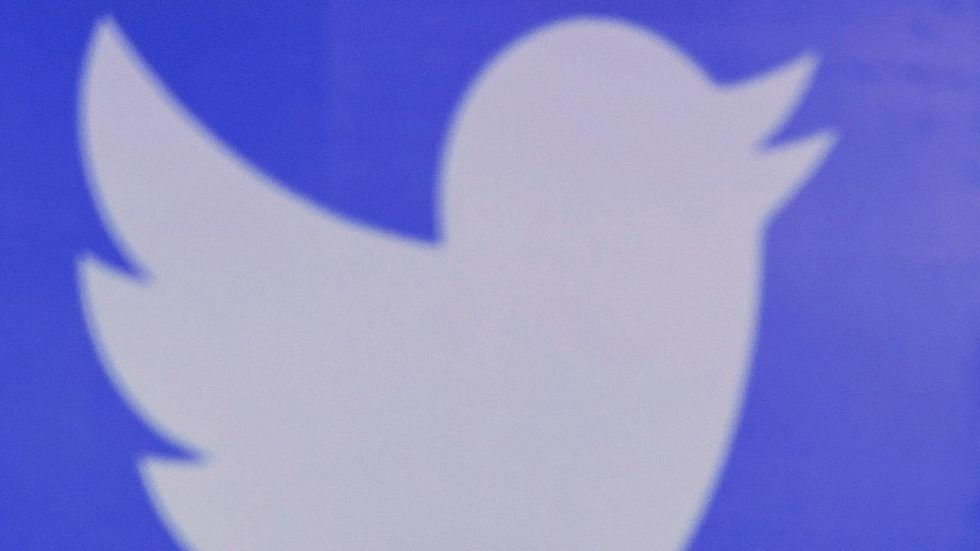
Photo credit: PRAKASH SINGH/AFP/Getty Images

Last Wednesday, outspoken conservative activist Laura Loomer was banned from Twitter indefinitely for criticizing Ilhan Omar, a Muslim Somali refugee and Democrat who won Minnesota's 5th Congressional District on Nov. 6.
Loomer, who is Jewish, called out Omar on Twitter for Islam's complicity in anti-Semitism, oppression, homophobia, Sharia Law, and genital mutilation. Some conservatives have denounced her tactics and don't necessarily agree with everything she says or does, but many do agree that deplatforming her was wrong.
Loomer, who had 260,000 followers on Twitter, was also banned on Facebook on Thursday for 30 days with no explanation. Loomer is just the latest casualty in Silicon Valley's conservative purge.
As you may recall, Dennis Prager of Prager University took Google to court after the search engine giant suppressed PragerU's signature 5-minute educational videos that touch on hot-button issues like free-market capitalism, abortion, gun rights, Marxism, and free speech.
Some may argue that it's the tech giants' right as a private company to censor. If you've read the latest columns on this issue or tuned into conservative talk radio, you've heard those on the right routinely lambaste Twitter and Facebook for allowing radical leftists like Louis Farrakhan and the New York Times' Tech journalist Sarah Jeong an uncontested place on their platform. Farrakhan is known for demonizing Jews and Jeong infamously slandered all white people in a series of tweets she claimed were satirical in nature.
In fact, Vox wrote a rebuttal to the right's outcry that Twitter apply the same community standards to Jeong's anti-white Twitter rants, but they didn't. Vox, like Twitter, dismissed Jeong's racist tweets in a lengthy column by claiming that because she's a progressive feminist, she's a prime target for "right-wing internet mobs." The column continued to defend Jeong by agreeing that the tweets were meant to be satirical and were completely taken out of context.
"While it was intended as satire, I deeply regret that I mimicked the language of my harassers," Jeong said in a statement after the fallout (Twitter account intact).
Meanwhile, leading up to the November midterm elections, Daily Wire host Michael Knowles was suspended by Twitter for three days for simply joking about which days Democrats should vote at the polls. It was a popular joke making the rounds among conservatives online.
It's not that conservatives want Jeong or Farrakhan equally censored, it's that the unbalanced targeting of conservatives online by large tech companies like Lyft, Uber, Google, Facebook, YouTube, iTunes, Spotify, and Twitter is a dangerous and blatant attempt to silence and distance "woke" tech giants from conservatives.
It sets a dangerous precedent for everyone in media both on the frontlines and behind the scenes because of the unintended effects. It directly corrodes Democracy. Again, many argue that Twitter is a private company and that it can censor whomever it pleases, but I'd argue that because these platforms are as large as they are, they maintain the capacity to destabilize discourse. Twitter's guidelines and community policies are inherently ideological (we witnessed this just this weekend after Twitter banned a feminist for saying for writing "men aren't women") which adds to the distrust.
Who's next? It's not surprising that trust in the media among Republicans dropped to a record low of 14 percent down from 32 percent, according to a Gallup poll. No one should self-censor out of fear and I fear some conservatives may find themselves doing so.
Social media should encourage the exchange of ideas -- good and bad -- without fear of repercussions (and I'm not talking about calls to violence here, I'm talking about the true exchange of ideas). Conservatives are already skeptical individuals, but the growing mistrust of Silicon Valley could have very well reached the point of no return.
There's a tangible frustration compounded with polarization that's now radiating between these so-called "platforms" and "publishers" and it's only going to get worse.